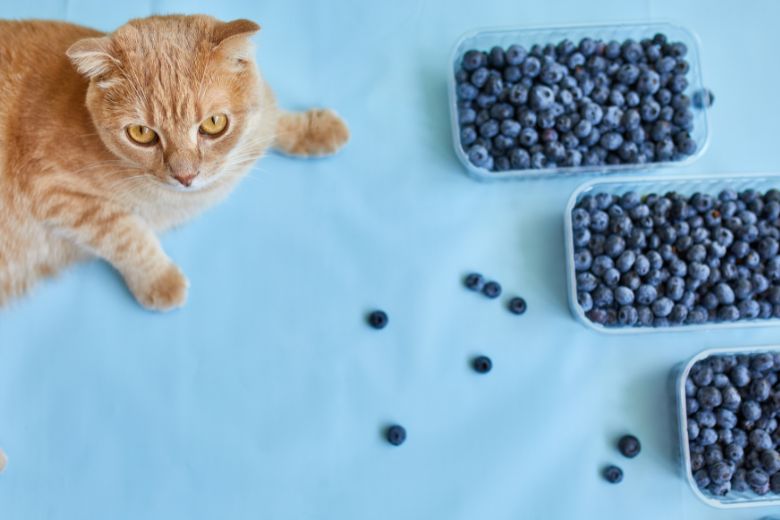Are Blueberries Bad for Cats
Blueberries have gained popularity as a superfood due to their high nutritional value and numerous health benefits for humans. As a pet owner, you may wonder if blueberries are also safe and beneficial for your feline companion. In this article, we will explore whether cats can eat blueberries and if they are suitable additions to their diet.
Understanding a Cat’s Diet
Before diving into the topic of blueberries for cats, it is essential to understand a cat’s dietary requirements. Cats are obligate carnivores, which means they primarily thrive on a meat-based diet. Their bodies have evolved to efficiently process animal protein and derive essential nutrients from it. A balanced and species-appropriate diet plays a crucial role in maintaining their overall health and well-being.
Blueberries: Nutritional Profile
Blueberries are small, vibrant berries known for their rich antioxidant content. They are packed with vitamins, minerals, and phytochemicals that contribute to their deep blue color and potential health benefits. Blueberries are an excellent source of vitamin C, vitamin K, and dietary fiber. They also contain antioxidants like anthocyanins, which have been linked to various health advantages in humans.
Can Cats Eat Blueberries?
While blueberries offer several health benefits for humans, the same cannot be said for cats. Cats have unique dietary requirements that differ significantly from ours. They rely on specific nutrients found abundantly in animal tissues, such as taurine and arachidonic acid, which are essential for their well-being. Blueberries, being plant-based, do not provide these essential nutrients in sufficient quantities.
It is important to note that cats lack certain digestive enzymes necessary for breaking down plant matter effectively. Feeding them a diet primarily consisting of fruits like blueberries can lead to nutritional imbalances and deficiencies. Therefore, it is advisable to avoid incorporating blueberries as a significant part of a cat’s diet.
Health Benefits of Blueberries for Cats
Although cats cannot derive the same nutritional benefits from blueberries as humans do, some studies suggest that small amounts of blueberries may offer certain advantages for feline health. The antioxidant properties of blueberries may have a positive impact on cognitive function and aging in cats. However, more research is needed to fully understand the extent of these benefits and their practical implications.
Risks and Considerations
Feeding blueberries to cats should be done with caution. While they are generally considered safe when given in moderation, some cats may experience digestive upset or allergic reactions. It is essential to introduce blueberries gradually into a cat’s diet and monitor for any adverse effects. If you notice any signs of discomfort or allergic reactions, such as vomiting, diarrhea, or excessive itching, discontinue the use of blueberries and consult your veterinarian.
Introducing Blueberries to Cats
If you decide to offer blueberries to your cat, it is crucial to follow a few guidelines. Start by introducing a small amount of blueberries and observe how your cat reacts. Remember that each cat is unique, and their tolerance for certain foods may vary. If your cat shows no adverse reactions, you can continue incorporating blueberries as an occasional treat, keeping the quantity small and infrequent.
Signs of Blueberry Allergy or Intolerance
It is essential to be aware of the signs of blueberry allergy or intolerance in cats. If your cat experiences any of the following symptoms after consuming blueberries, it may indicate an adverse reaction:
- Excessive scratching or itching
- Swelling of the face or throat
- Gastrointestinal disturbances like vomiting or diarrhea
- Respiratory difficulties
If you notice any of these signs, it is advisable to seek veterinary advice promptly. Your veterinarian can help determine if the symptoms are related to blueberry consumption and provide appropriate guidance.
Other Safe Fruits for Cats
If you are looking for alternative fruits that are safe and healthy for cats, there are several options to consider. Some examples include watermelon, bananas, and apples. However, it is important to remember that fruits should only be a small part of a cat’s diet and should not replace their main source of nutrition, which should be a balanced and species-appropriate cat food.
Conclusion
In conclusion, while blueberries offer numerous health benefits for humans, they are not essential or suitable for a cat’s diet. Cats have unique dietary requirements as obligate carnivores, and their nutritional needs are best met through a balanced, meat-based diet. While small amounts of blueberries may have some potential benefits for cats, it is crucial to exercise caution and moderation when introducing them. If you have any concerns or questions about your cat’s diet, it is always best to consult with a veterinarian.







